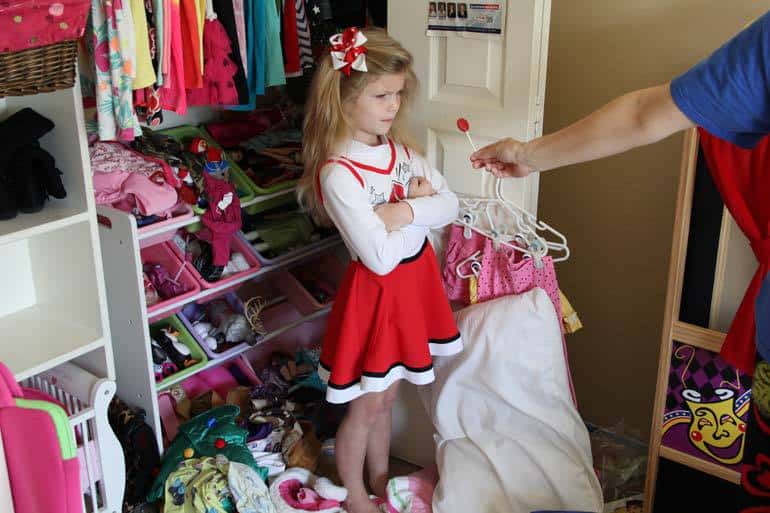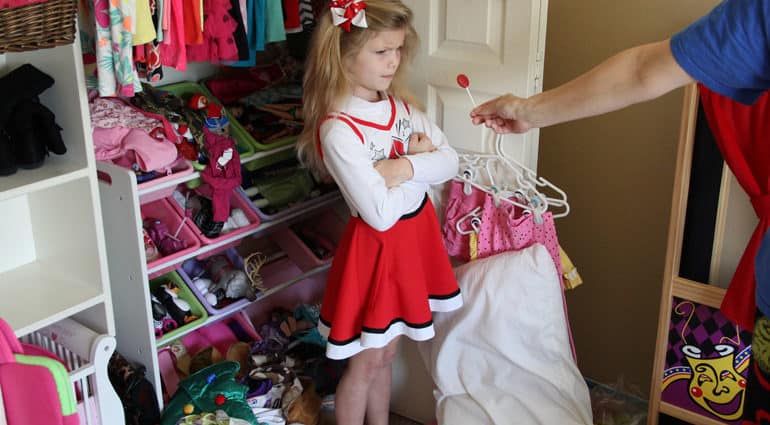“Open this door now!” I screamed. I have three children, ages 6, 5 and 4. My 5 year old, who is often the most behaviorally challenged, had locked himself in the bathroom and would not come out. We were in the waiting room of a doctor’s office, so my increasing vocal volume was drawing attention. I was angry and embarrassed.
I had told my son that we would go to McDonald’s after the appointment if he was good. Well, he wasn’t being good, so I yelled through the door,
“We’re not going to McDonald’s if you don’t open this door right now!”
People were staring at me by this time. Some were amused, some showed clear displeasure on their faces at my inability to control my son.
So, I then said much softer,
“Cade, if you come out, I’ll take you to McDonald’s.”
Did you catch it? What started off as a reward quickly became a bribe. How did it happen? I knew better than to bribe.
However, was that really so bad? The result was the same. He came out of the bathroom. I had told him that he would get something good if he behaved. I wasn’t sure what happened, what I had done. I simply felt that I had somehow been tricked and that he had coerced something out of me.
How do we as parents know if the rewards that we give to our children are manipulated by them? It is hard to determine this when one is parenting children who are developing normally. I have found that it is even more difficult when dealing with special needs children.
How do we as parents know if the rewards that we give to our children are manipulated by them?
Parents of special needs children see their child’s teachers and therapist handing out candy, tokens, and stickers constantly, and for every little accomplishment. In addition, the behavior of a special needs child may be much more volatile, leaving a parent with fewer options, especially when in public.

What’s the difference between a reward and a bribe?
The best way to distinguish between bribing and rewarding is the timing involved. A reward is previously determined upon by the child and parent on the condition that there will not be a certain unwanted behavior. A bribe is made when that unwanted behavior is in progress in order to put a stop to it.
Simply stated: Bribes stop unwanted behavior. Rewards keep unwanted behavior from starting.
Bribing
Every mother who has come through my waiting room expresses some fear and anxiety of taking their children to the grocery store. Midway through the trip, when the cart is full, their son or daughter decides to throw a full temper tantrum. Not a meltdown, just a tantrum. To get through the trip, Mom grabs a toy or a piece of candy and gives it to the child. Problem solved. The child is happy and Mom can finish her shopping and leave the store.
This isn’t the best way to handle this situation.
Bribing a child is always a bad idea because your child is in control. We have experienced such situations. However, it is a slippery slope. Soon you’ll find yourself offering various toys and trinkets that are then rejected by your child. He or she will only stop the said behavior when you have produced something satisfactory.
Rewarding
Suppose your child has a history of throwing temper tantrums in the store. You may be inclined to avoid taking him because of his behavior and prefer to go alone. However, perhaps there comes a time when you must take your child with you. It is best to have a talk clarifying the behavior expected for the intended outing before you go. You are both going to the store and he needs to behave well. He can have a toy, ice cream or candy IF he controls himself. You, as the parent, are in charge of the situation.
Rewards are the better option, but they do take work. Children are masters at sensing any weakness in your resolve. It is, however, best that rewards not become a regular “deal” with your offspring. Otherwise, they may begin to expect one. I have had one of my own children say, “I was good, now give me something.”
Children, no matter what their diagnosis, are expected to behave appropriately and it’s our job to teach them how to do that, not to pay them.
- Bribing Versus Rewarding - November 14, 2016
- Bribing Versus Rewarding - November 14, 2016
- Bribing Versus Rewarding - November 14, 2016





